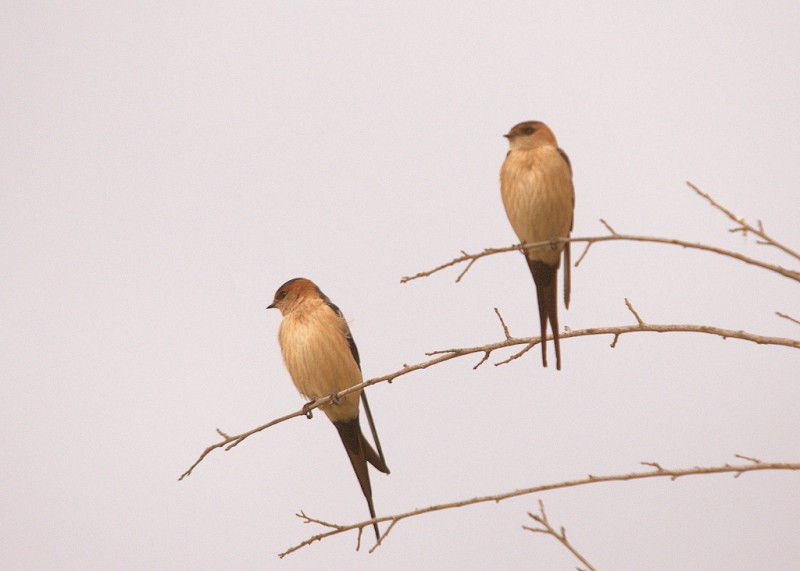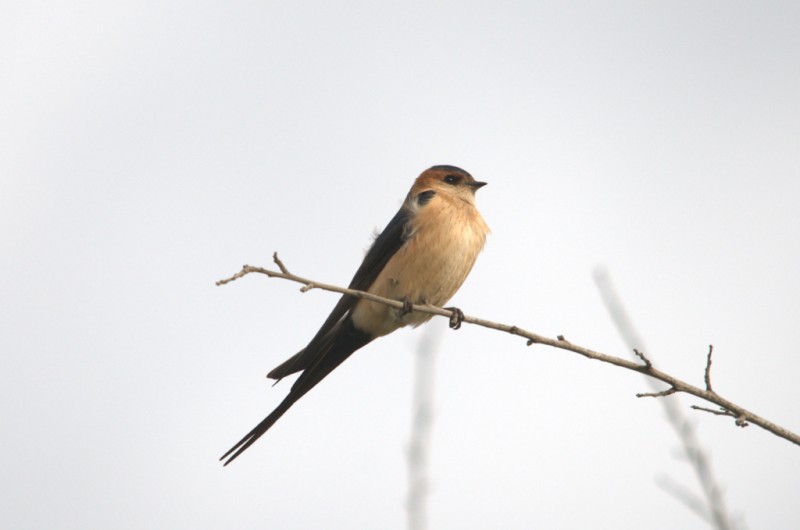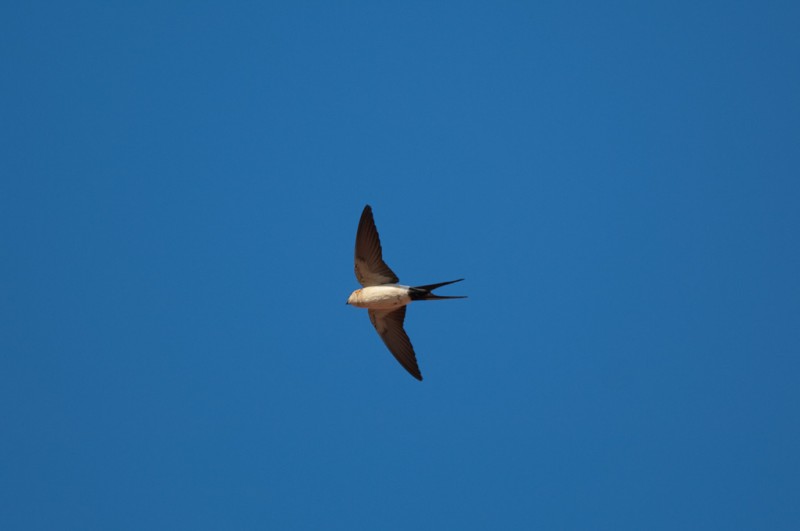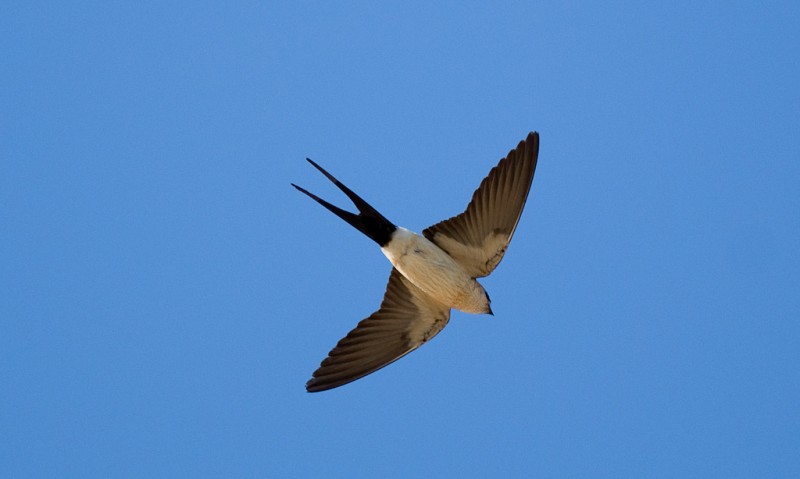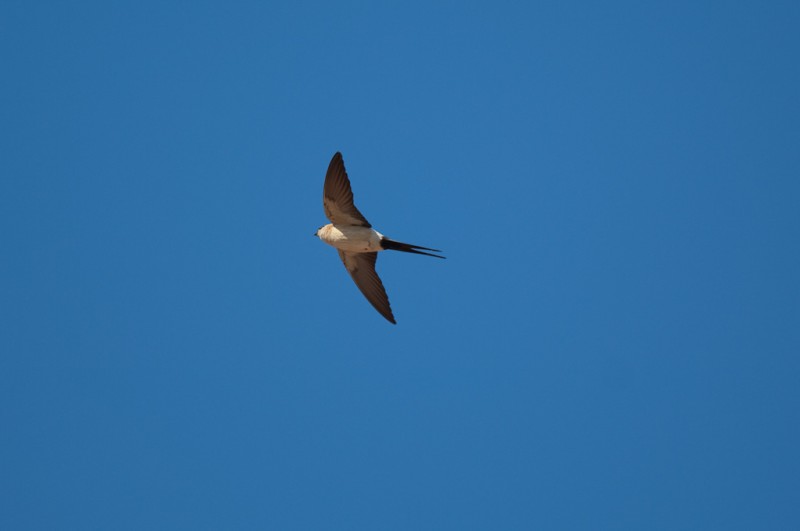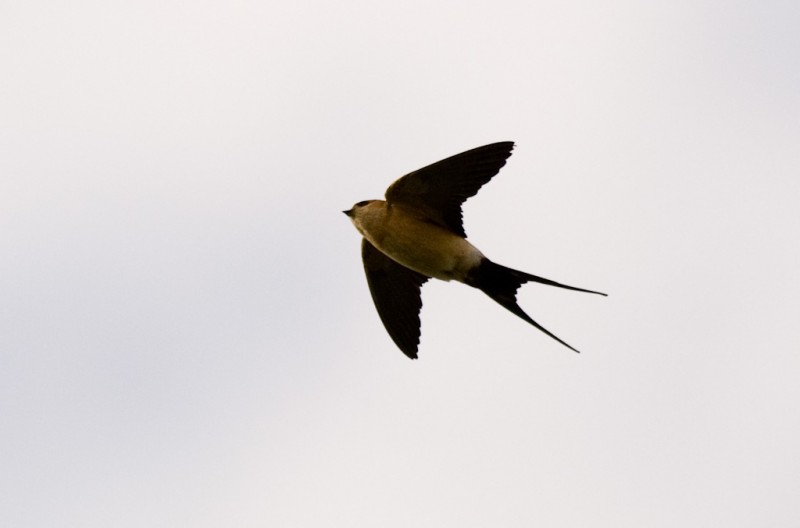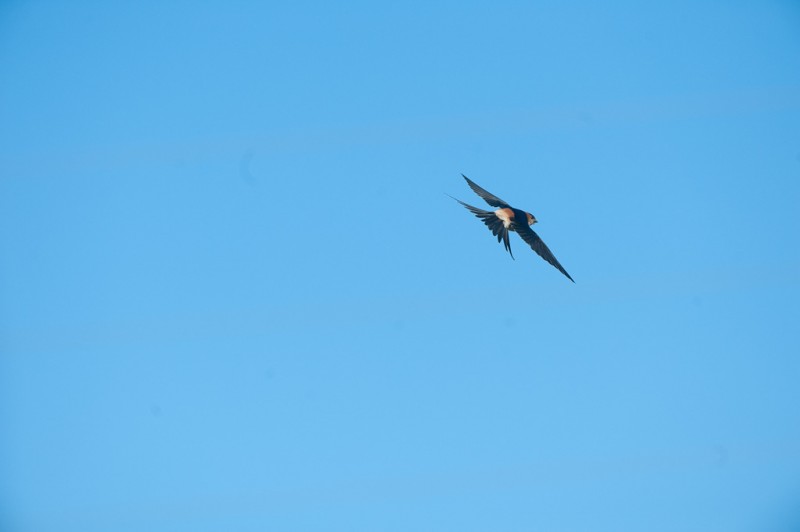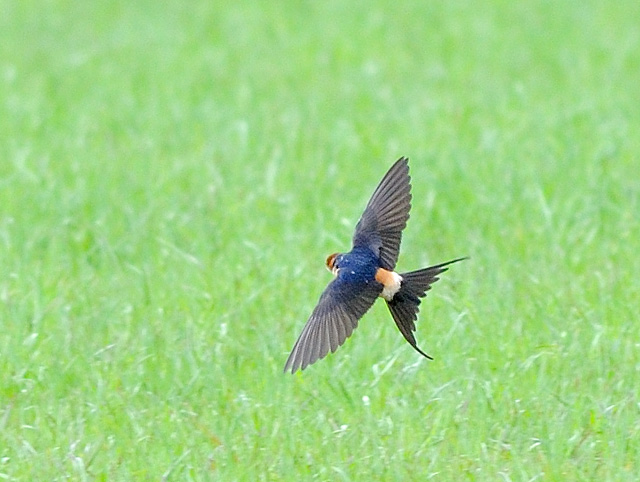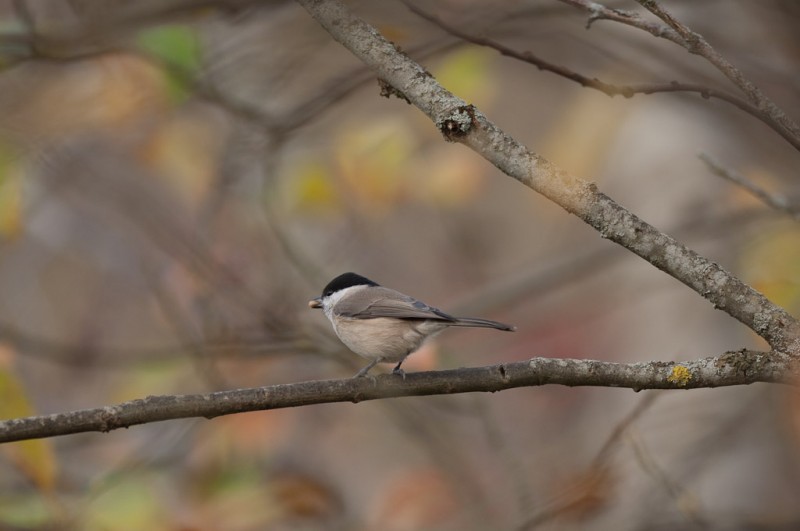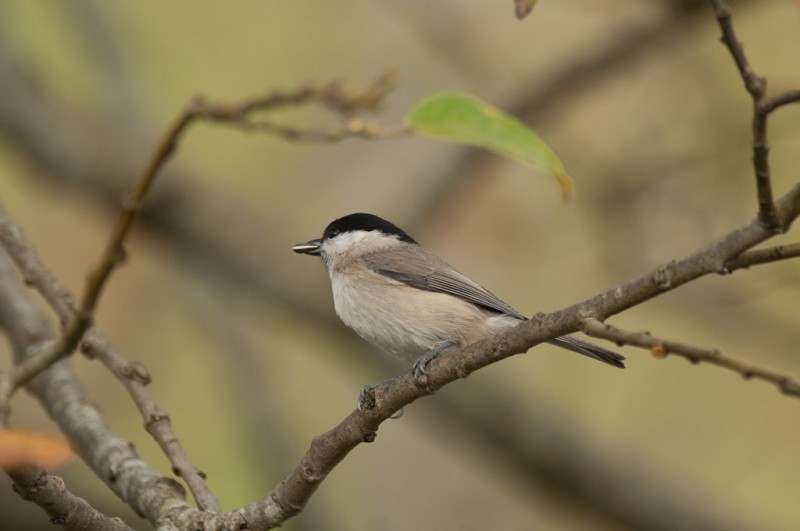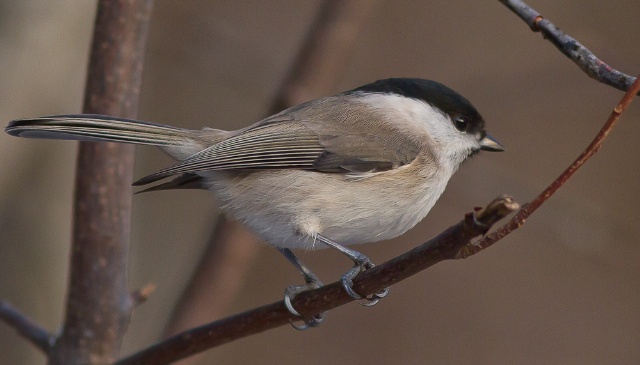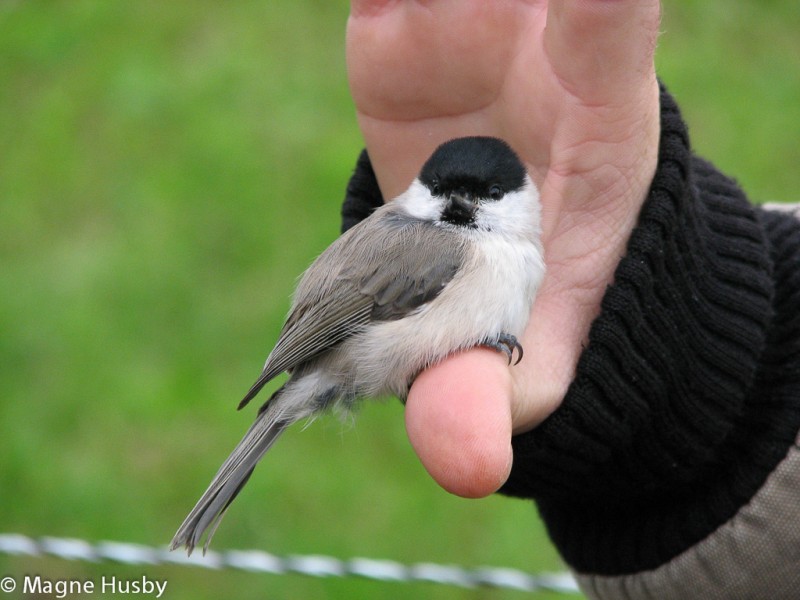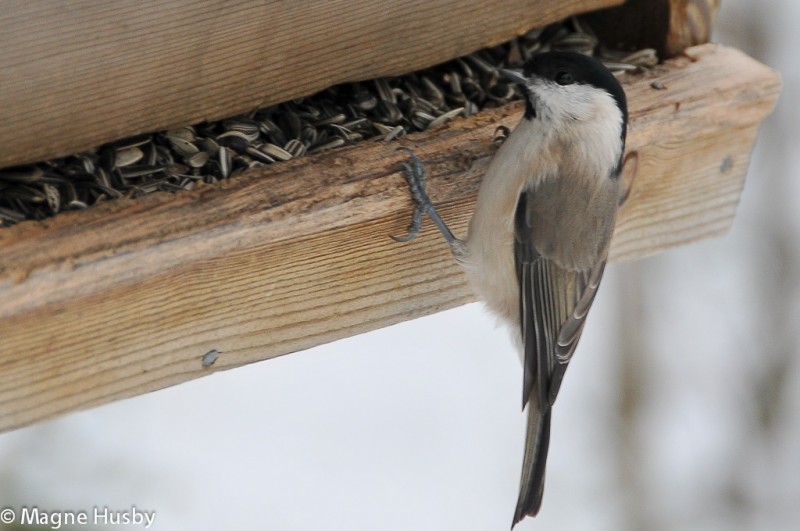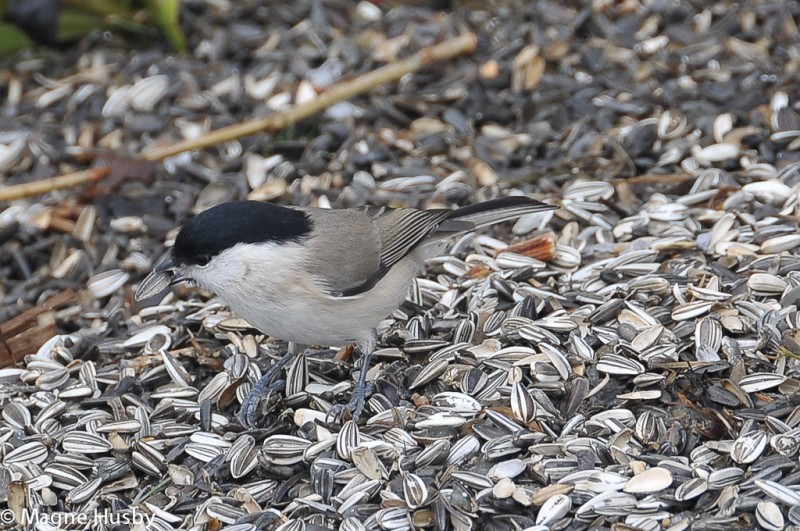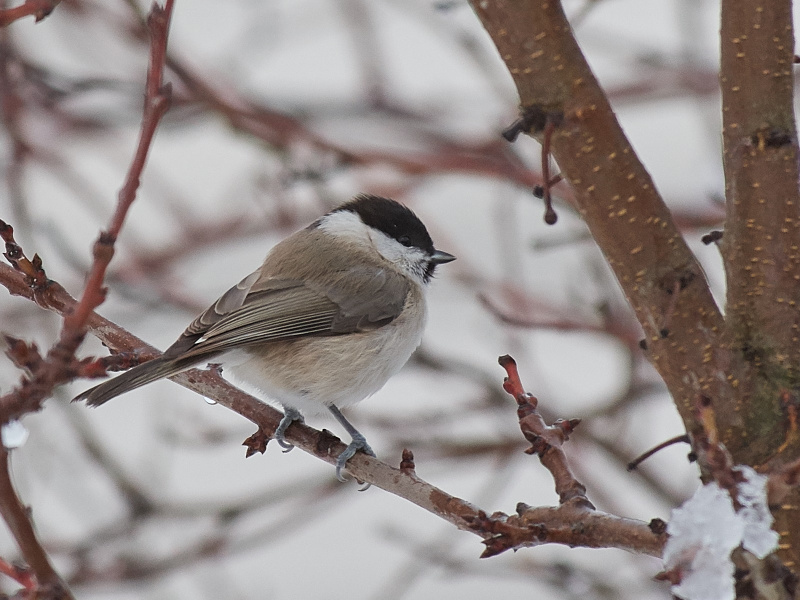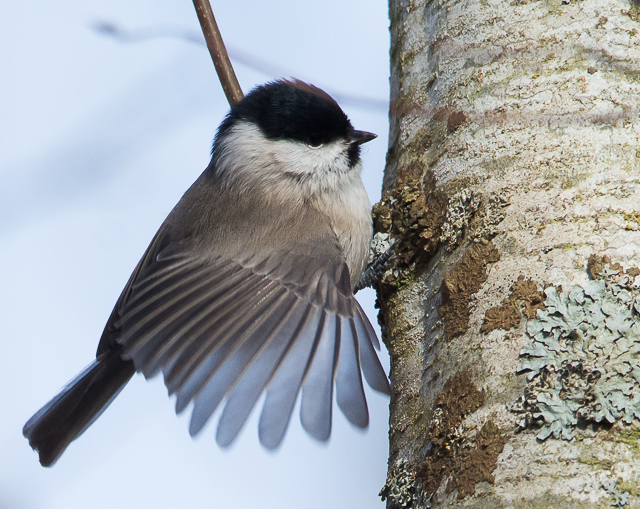Red-rumped Swallow (Cecropis daurica)
Marsh Tit (Poecile palustris)
Differs from Barn Swallow in all plumages by pale throat and black under tail coverts, which are visible at greater distance than the red rump. Rufous cheeks and collar. Underparts finely streaked, giving the bird a slightly "dirty" look from a distance, with less contrast to the upperparts than in Barn Swallow. Immature birds with short streamers and buff cheeks and rump. Build more compact than Barn Swallow, with shorter bill, rounded wings and slightly shorter streamers. Flight slower and with more frequent gliding.
Sound:Less vocal than Barn Swallow. Song slower, and less energetic. Each phrase starts with a few staccato notes, leading to a short, twittering sequence of a few seconds length, with some drawn notes. Timbre is metallic and "broken", and quite diagnostic.
Song:
Distribution:
Wikipedia: map (se also Xeno-canto below)
Ecology:Birdlife ecology
Links:
Observation.org Latest observations
Image search Flickr NB! May give other species
CCGlossy black hood and plain, pale brown upperparts. Cheeks brownish towards nape. Small, rounded, black bib. Small pale spot on base of upper mandible (often surprisingly visible, despite small size). Very similar to Willow Tit, especially British sub.sp. Willow tit has bigger head, not so glossy cap, whiter cheeks, larger bib and pale wing panel.
Sound:Most easily identified by sound. Especially in areas where plumage is less distinct compared to Willow Tit, like in Britain. Most typical call an explosive, sneeze-like "pee-choo", starting high-pitched and ending on a lower note.
Also calls "chaa chaa chaa" but not so nasal and drawn-out as willow tit. Song: A simple one or two note call repeated in series. Usually rising slightly in pitch, and with a "liquid" quality. Sometimes also a ringing, vibrating song. Generally has a much sharper tone than the soft song of willow tit. Other calls: Various high pitched sound. Often quite explosive.
Distribution:
Wikipedia: map (se also Xeno-canto below)
Ecology:Birdlife ecology
Links:
Observation.org Latest observations
Image search Flickr NB! May give other species
CC
 English
English Albanian
Albanian
 Armenian
Armenian
 Bulgarian
Bulgarian
 Catalan
Catalan
 Croatian
Croatian
 Czech
Czech
 Danish
Danish
 Dutch
Dutch
 Finnish
Finnish
 French
French
 Georgian
Georgian
 German
German
 Greek
Greek
 Hungarian
Hungarian
 Italian
Italian
 Latvian
Latvian
 Lithuanian
Lithuanian
 Macedonian
Macedonian
 Norwegian
Norwegian
 Polish
Polish
 Portuguese
Portuguese
 Romanian
Romanian
 Russian
Russian
 Sami : Lule sami
Sami : Lule sami
 Sami : North sami
Sami : North sami
 Sami : South sami
Sami : South sami
 Scientific names
Scientific names
 Serbian
Serbian
 Spanish
Spanish
 Swedish
Swedish
 Ukrainian
Ukrainian


